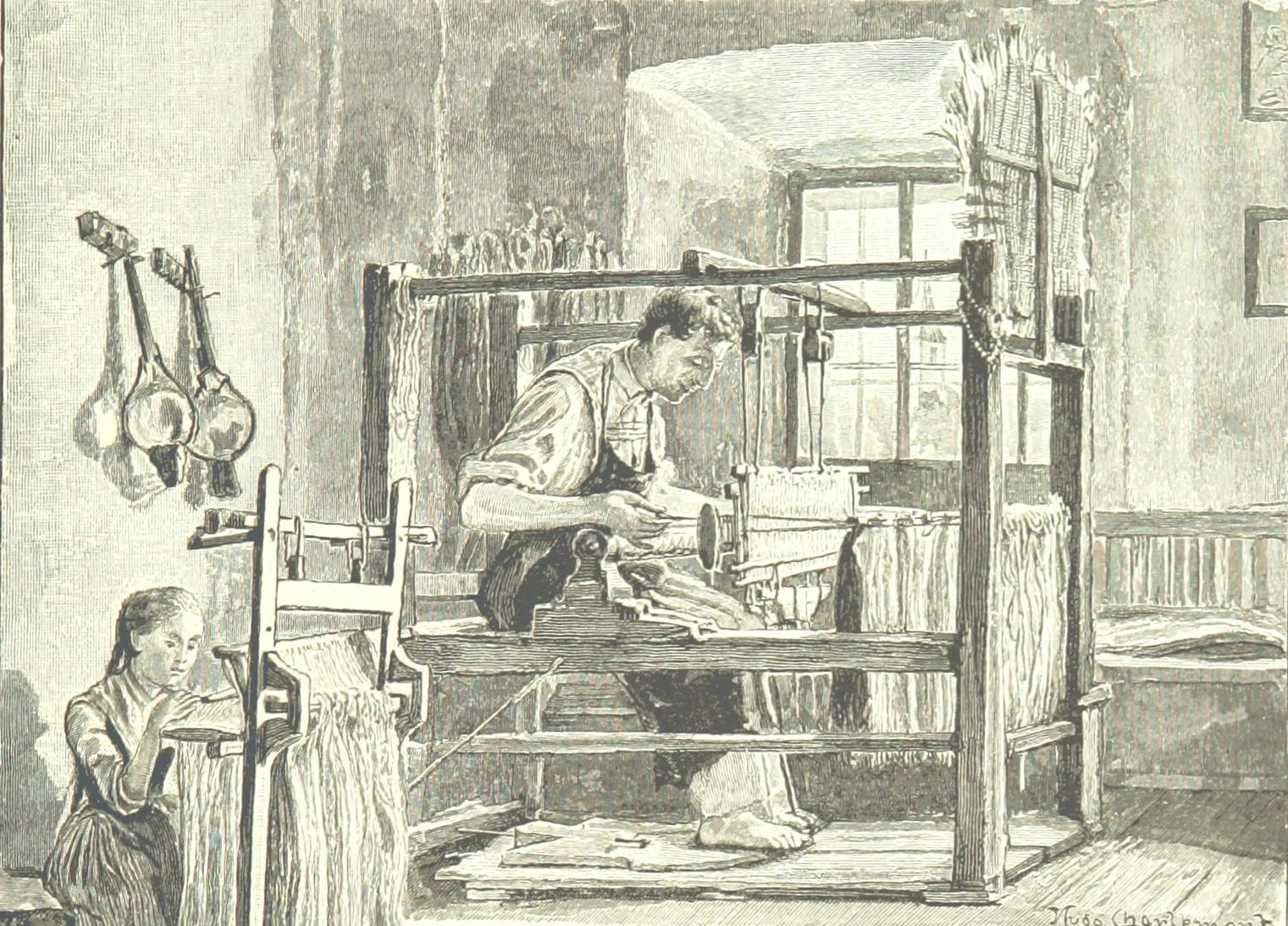Does Work Really Have to be So Painful?
- PotpourriBut why?

I recently discovered a study by Alex Bryson and George MacKerron called “Are You Happy While You Work?" They checked in with people at random times throughout the day and asked them what they were doing and how they were feeling at that moment (happy, relaxed, awake). Out of a list of 39 daily activities, people said they were least happy when they were sick. Coming in strong at #38? Work. People ranked paid work lower than ANYTHING apart from being in bed, racked with illness.
Wow. What in the wide, wide, world of sports is going on here? Bryson and MacKerron hypothesized that momentary happiness goes down at work because of the stress and anxiety people feel while on the job. For example, there is other research showing that the pressure to work quickly has a negative impact on people’s happiness.
But here’s where it gets interesting for me: Bryson and MacKerron didn’t think this was the whole story. They said, “It appears that work per se is negatively associated with hedonic wellbeing, such that we would rather be doing other things.” Can I get an “amen” here? Are you thinking, “Shocker! They needed a whole research study to figure that out? You bet your boots I would rather be doing something else.”?
I see an opportunity here. What if we could change the negative relationship between happiness and work? What if we could change our minds? For most of us, the reality is that we have to work for money…at least for now. If that’s the case, the only part of the equation we CAN change is how we think about our jobs.
I see those of you who are abused, unsafe, under-appreciated, and/or underpaid at work and aren’t able to change that right now. Maybe some of what I say below will help you manage that situation until you’re able to leave it. I hope so. But maybe the rest of us don’t need to leave our jobs; we can improve things just by changing our thinking.
Here’s an example to get us started: back in 2007, some researchers published a study in Psychological Science about mindset and health. They spoke to 84 women who worked as housekeepers in seven different hotels. They told half the women (the Informed group) that cleaning hotel rooms is good exercise and qualifies as an active lifestyle under the Surgeon General’s definitions. They didn’t say anything at all to the other half of the women (the Control group).
Would you like to guess what happened? Well, nothing about these women’s work or behavior changed, but a month later, the Informed group thought they were getting much more exercise than before. The Control group didn’t show any change in perceived exercise. And here’s the kicker: compared to the Control group, the Informed group had lost weight and lowered their blood pressure, body fat percentage, waist-to-hip ratio, and body mass index.
That is the magic of our wondrous brains. We can actually start telling ourselves different stories, which makes us feel better and also makes us healthier.
So let’s take what we’ve learned so far and apply it to work more generally. Here are some common beliefs about work:
· Bosses are horrible,
· XYZ co-worker is such a jerk,
· Work is drudgery and then you die,
· I’m not attractive/young/connected/extroverted/smart/talented enough to do well,
· I have to work myself to death to succeed,
· It’s a dog-eat-dog world (feel free to add the postscript, “and I’m wearing Milk-Bone underwear” if you like), and
· I would rather be doing other things.
Do you recognize that last one? Yes, that’s what Bryson and MacKerron thought was making us so unhappy at work. It’s a belief, just like all the others. So how do we come to grips with these beliefs and start to change them?
Luckily, I’ve been working with a coach and she has some excellent strategies for changing the beliefs which don’t serve us anymore. Here are the steps we work on together:
1. Notice the belief: this first step is harder than it might appear. Some of these beliefs are so ingrained and natural to us that they feel like facts. For example, I firmly believed that I had to work myself to death to succeed. If it was easy or didn’t take very long, I didn’t think I deserved the money I was being paid. I had to notice this was just a belief, not a fact.
2. Decide whether the belief is serving us or not: this is the time to ask ourselves if we WANT to hold onto a belief or not. Is this still the person we want to be? I found that my old belief about working myself to death certainly wasn’t serving me anymore (if it ever did). I was tired and cranky and always complaining about work, and I wanted something better.
3. Start questioning the belief: after I identified my nasty old belief and decided it wasn’t serving me, I had to start arguing with myself whenever it came up. I had to tell myself that my health and personal time were more important than work, and that I could still contribute at work without harming myself. Maybe I could even do better at work without harming myself?
4. Observe that belief changing and stay on top of it: after I argued with myself enough times and started to find a good life outside of work, I found that I didn’t really believe my old story anymore. I could see, in my own life, how taking care of myself and my personal time had a positive impact on how I was doing at work. The old belief fell away and I started believing I could make plenty of money and still have peace and health.
5. Notice and celebrate your new belief: at some point, that new belief will become a habit. Celebrate that! Now that I believe I can make plenty of money and still have peace and health, I don’t have to think as hard about it anymore. I can skip from seeing the old belief pop up and go straight to remembering my new belief. Hooray!
That’s just one simple example of how the process of changing beliefs has worked in my life. If you believe some of those stories about work I mentioned above, do you want to change any of them? Are there other old stories you notice in your life and would like to change?
I’m living testimony that this process really works, and now that I’ve tried it on a whole raft load of my old beliefs, my life has changed. I don’t dread Mondays anymore or say, “TGIF.” I do interesting work, I have fun doing it, and I love the people I’m spending time with every day. And yes, that includes my boss…she’s wonderful! I’m growing and learning, and I still have time to do my own thing and take care of myself. And, inconceivably, there are times when I actually wouldn’t rather be doing something else. Ta-da! Maybe that sounds a little facile, but believe me, it took time and practice.
And there’s more: this process works for beliefs about people, too. We humans are susceptible to a pesky thought pattern called Attribution Bias. Attribution Bias means (in part) that we excuse our own mistakes and poor behavior by blaming the circumstances, but when other people make mistakes or exhibit poor behavior, they’re just jerks. We blame others for having a personality defect but excuse ourselves. So if I cut someone off in traffic, I’m in a mega-hurry to get to the Barry Manilow concert and really need those few extra seconds. If someone cuts me off in traffic, they’re an a**h***. Right? Let’s pause for a quick laugh at ourselves here; aren’t we hilarious?
So how does Attribution Bias apply to our beliefs about people at work? It’s a belief just like anything else. Could it be true that our work nemesis isn’t really a jerk? What if it WERE true? To quote Brené Brown, what if everyone is doing the best they can? Whether you believe it’s true or not, if you take a moment and act like it’s true, you will feel a little more compassion for your nemesis. There may be any number of reasons why this person is the way they are, and you may not know any of them. Where is their fear? Where is their pain? Could it be that they are a human just like you?
Sure, your work nemesis may really be a jerk. It’s a possibility. But if you act as if the jerk is doing the best they can, it might help you have compassion and focus on ways to improve the relationship. At a minimum, it might help you see that they have mitigating circumstances in their life just like you do. It doesn’t mean you have to suffer abuse, but as you set boundaries with this person you might just give THEM a reason to change because you can approach them with acceptance instead of anger, dislike, or frustration.
At the end of the day, I don’t want to go through life wishing I were doing something else or wasting energy on hating someone. That’s not a very nice place to be. I hope you’ll join me as I continue to sweep out the dusty corners of my beliefs and identify the ones which don’t work for me anymore. The rewards are great: increased happiness and better health.
And if you’re wondering what all this has to do with personal finance, it’s just that work makes up such a large proportion of our lives. Most of us still need to work for money, at least for a while. This money funds everything from our basic needs to our aspirations, so why not be happy and healthy while we earn it?



